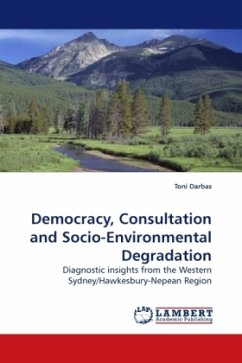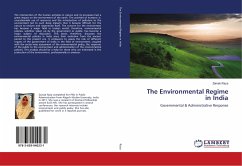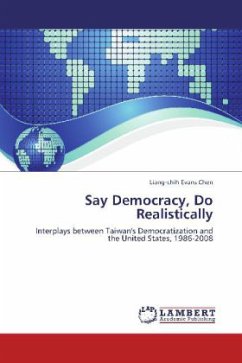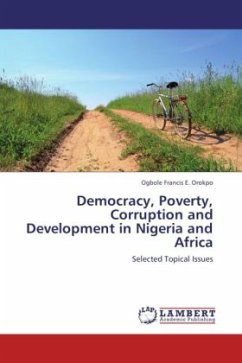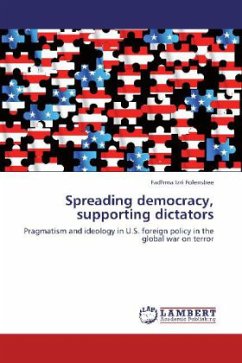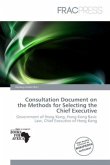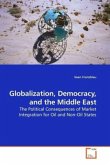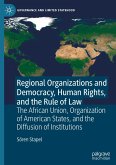The use of community consultation to address socio-environmental degradation is entwined with contested democratic principles polarising views of its role. Three democratic paradigms are at issue. Conceiving consultation as deliberative reconciles the liberal view of consultation as the illegitimate elevation of minority groups with the participationist view that consultation constitutes a step towards participatory democracy. A deliberative conception of the role of community consultation over socio-environmental degradation nonetheless confronts the problem of functional differentiation that renders legal, political, techno-scientific and administrative domains increasingly self referential and unaccountable. This problematic is illustrated with the case of Western Sydney s urban sprawl into the Hawkesbury Nepean River Catchment in the Australian State of New South Wales. This sprawl arose from economic growth underwritten by the New South Wales State. The consultative provisions of the Environmental Planning and Assessment Act (1979) failed to resolve the contestation that environmental degradation of this region provoked.

